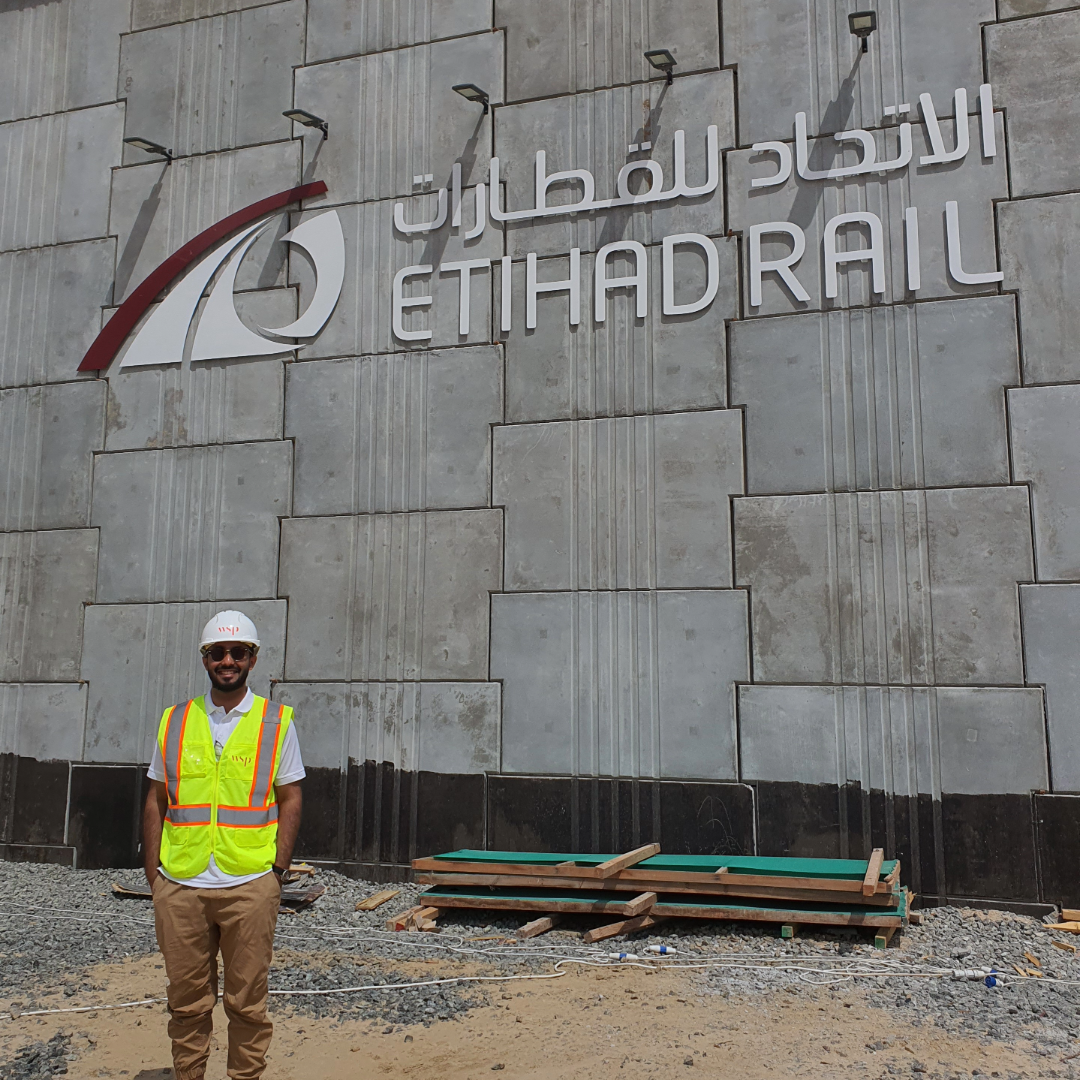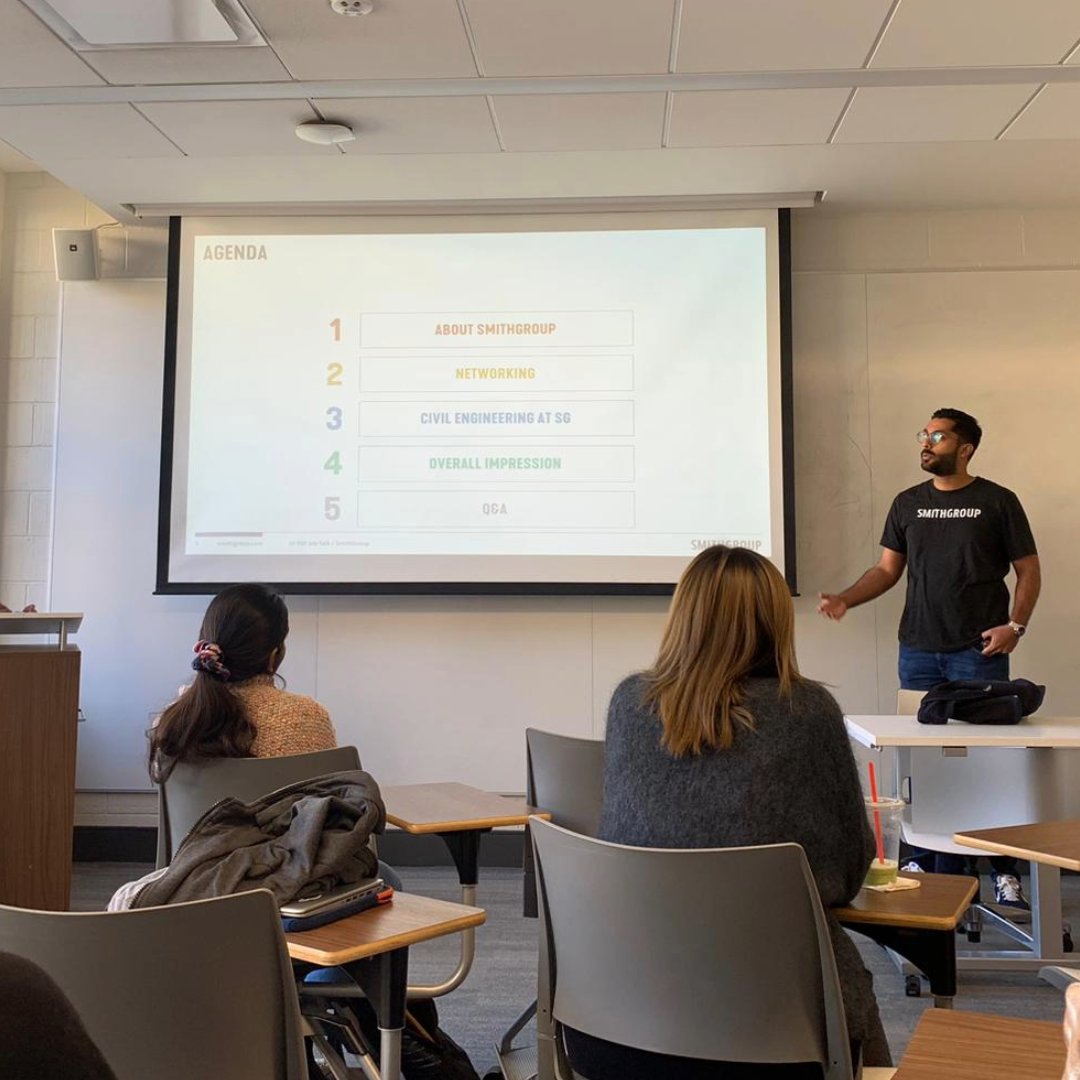
From Dubai to Pittsburgh: Customized Curriculum Elevates Alum's Career Trajectory
 Prior to attending CEE, Steve Lobo (MS '23) had already made a huge mark in his hometown of Dubai. There, he worked as a Utilities Engineer with WSP, involved in the design of Zayed National Museum and Red Sea Airport’s infrastructure, among other regional civil infrastructure and master-planning projects. But his proudest accomplishment was serving as a member of the utility engineering team involved in the design of Dubai’s freight rail network, Etihad Rail.
Prior to attending CEE, Steve Lobo (MS '23) had already made a huge mark in his hometown of Dubai. There, he worked as a Utilities Engineer with WSP, involved in the design of Zayed National Museum and Red Sea Airport’s infrastructure, among other regional civil infrastructure and master-planning projects. But his proudest accomplishment was serving as a member of the utility engineering team involved in the design of Dubai’s freight rail network, Etihad Rail.
When he decided to further his education, Lobo sought a master’s degree program that would utilize his background in electrical engineering while allowing him to explore what he calls “the nexus between energy and civil infrastructure.” CEE’s reputation as an interdisciplinary program attracted Lobo immediately because it complemented his multi-disciplinary approach to solving complex problems.
“I chose to attend CEE because the department offered me the chance to combine both civil and energy systems studies,” he says. “With the recent revamp of specializations for the graduate program, it makes the program stand out even more and I couldn’t be more proud!”
Lobo adds that the CEE master’s degree flexibility was another major selling point. His advisors, including professor Mario Bergés, guided him as he pursued coursework in subjects ranging from utilities engineering to urban planning and sustainability in the built environment—all while he balanced working at a part-time engineering job.
“I chose to attend CEE because the department offered me the chance to combine both civil and energy systems studies. With the recent revamp of specializations for the graduate program, it makes the program stand out even more and I couldn’t be more proud!”
His determination paid off. “I was offered a full-time position at SmithGroup a full semester before graduating. I know this wouldn’t have been possible without my family and professors' support,” he says.
Lobo states that CEE’s coursework pushed him out of his comfort zone, forcing him to think broadly and hone skills in buildings design, water treatment and geospatial analysis. He mentions a list of classes that helped to shape his course of study—knowledge that he continues to rely upon in his current job: Sensors for Infrastructure, Climate Change Adaptation, and Fundamentals of Water Quality Engineering.
 Lobo is now an energy analyst in SmithGroup’s Pittsburgh office, where he’s part of the performance, analytics, and climate impact team (PACT). He’s responsible for energy systems analysis and utility infrastructure planning/design for campus and urban developments. “PACT is an award-winning team recognized in the industry for its future-thinking designs for buildings, campuses, and cities. I am so excited to work with them!” he adds.
Lobo is now an energy analyst in SmithGroup’s Pittsburgh office, where he’s part of the performance, analytics, and climate impact team (PACT). He’s responsible for energy systems analysis and utility infrastructure planning/design for campus and urban developments. “PACT is an award-winning team recognized in the industry for its future-thinking designs for buildings, campuses, and cities. I am so excited to work with them!” he adds.
Lobo recommends that students interested in CEE consider the benefits of the tailored program that includes working alongside “some of the best minds in the world. You’ll be surrounded by people, students, and professors who solve important problems in our industry,” he says. Lobo adds that the school’s global reputation for excellence carries great cache within the engineering industry.
Lobo’s customized experience allowed him to build knowledge across disciplines, reaching his educational goals. “I took advantage of energy and power classes offered in the Architecture, ECE, and ESTP programs to support my interests in energy systems, grid design and operations, electricity markets, renewable energy, and energy storage.”
He believes that his unique blend of coursework, mentorship, and previous work experience will allow him to continue building upon an already impressive resumé of work.